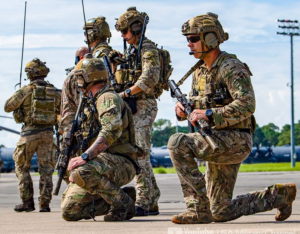In an unprecedented move, hundreds of Israeli Air Force reservists and retired officers have called on their government to negotiate with Hamas for the safe return of hostages, even if it means halting military actions in Gaza. Their letter, which gathered around a thousand signatures, reveals deepening divisions within the military community regarding the ongoing conflict. The appeal stressed the notion that continuing military operations poses unnecessary risks to the hostages’ lives, a sentiment met with harsh criticism from the Israeli government, which accused the signatories of undermining national security.
Hundreds of Israeli Air Force Reservists Urge Government to Prioritize Hostage Return Over Gaza Conflict

Hundreds of Israeli Air Force Reservists Urge Government to Prioritize Hostage Return Over Gaza Conflict
A significant letter from Israeli Air Force reservists challenges the government’s strategy in the Gaza conflict, sparking debate over military decisions versus hostages' safety.
On Thursday, a noteworthy group, consisting of around one thousand reservists and retired Israeli Air Force personnel, expressed their concerns in a public letter addressed to the government. They urged an immediate ceasefire and negotiations with Hamas to ensure the safe return of hostages currently held by the militant group, emphasizing that their lives have become increasingly threatened by the ongoing military operations.
Among the signatories were respected figures, including a former chief of staff, underscoring the seriousness of their critique. The letter suggested that the current military strategy is not merely a matter of national security but is also influenced by political motives, urging, “Stop the fighting and return all of the hostages — now! Every day that passes endangers their lives.”
The urgency of their message reflects significant concern regarding the fate of the hostages, as the Israeli government has estimated that 24 of the remaining 59 hostages are believed to be alive. Retired Major General Nimrod Sheffer articulated this sentiment, stressing the moral imperative to prioritize the safe return of hostages.
This growing dissent within the Air Force highlights a broader divide concerning the government's handling of the war in Gaza, which has claimed thousands of lives and resulted in widespread destruction. The Israeli military's critical stance on the letter resulted in the announcement of potential disciplinary actions against active-duty reservists who signed it, raising questions about the implications of such actions on military operations.
The Israeli government’s response was staunch, describing any public dissent as “unforgivable” and warning against statements that could interfere with military objectives during wartime. Critics, including opposition politicians, have accused Prime Minister Benjamin Netanyahu of placing political survival above the urgent need to secure the release of hostages, amidst pressures from far-right coalition partners who oppose any ceasefire without a decisive military victory against Hamas.
This development follows a backdrop of strained military and civilian relations, notably illustrated by previous threats from air force pilots to suspend their duties during earlier protests against government actions perceived to undermine democratic institutions. The recent measures taken by the government, including passage of new laws affecting judicial power, have reignited these tensions, complicating the narrative surrounding Israel's military strategies and the complicated interplay of politics and warfare in the region.



















